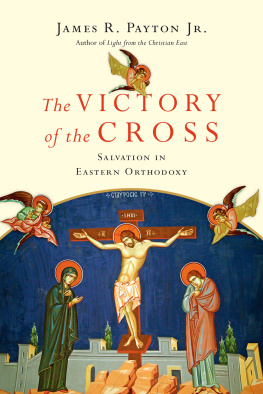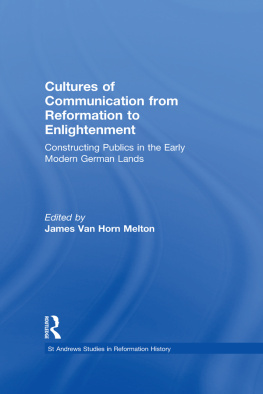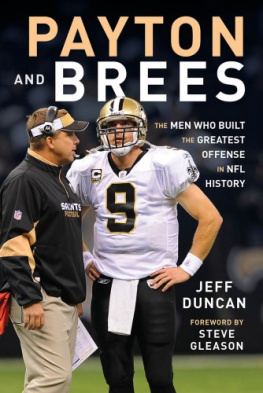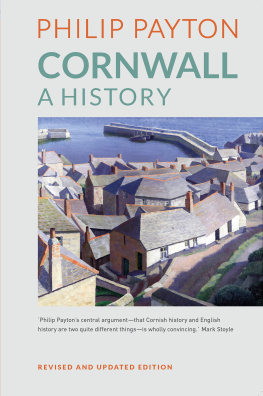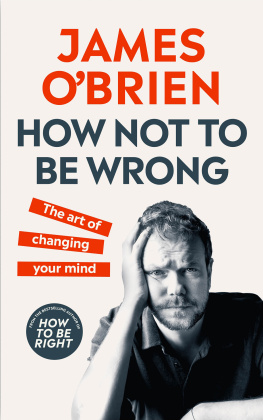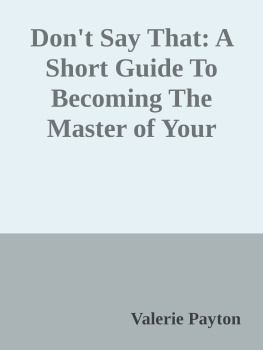James R. Payton Jr. - Getting the Reformation Wrong: Correcting Some Misunderstandings
Here you can read online James R. Payton Jr. - Getting the Reformation Wrong: Correcting Some Misunderstandings full text of the book (entire story) in english for free. Download pdf and epub, get meaning, cover and reviews about this ebook. year: 2010, publisher: InterVarsity Press / IVP Academic, genre: Religion. Description of the work, (preface) as well as reviews are available. Best literature library LitArk.com created for fans of good reading and offers a wide selection of genres:
Romance novel
Science fiction
Adventure
Detective
Science
History
Home and family
Prose
Art
Politics
Computer
Non-fiction
Religion
Business
Children
Humor
Choose a favorite category and find really read worthwhile books. Enjoy immersion in the world of imagination, feel the emotions of the characters or learn something new for yourself, make an fascinating discovery.

- Book:Getting the Reformation Wrong: Correcting Some Misunderstandings
- Author:
- Publisher:InterVarsity Press / IVP Academic
- Genre:
- Year:2010
- Rating:5 / 5
- Favourites:Add to favourites
- Your mark:
- 100
- 1
- 2
- 3
- 4
- 5
Getting the Reformation Wrong: Correcting Some Misunderstandings: summary, description and annotation
We offer to read an annotation, description, summary or preface (depends on what the author of the book "Getting the Reformation Wrong: Correcting Some Misunderstandings" wrote himself). If you haven't found the necessary information about the book — write in the comments, we will try to find it.
Getting the Reformation Wrong: Correcting Some Misunderstandings — read online for free the complete book (whole text) full work
Below is the text of the book, divided by pages. System saving the place of the last page read, allows you to conveniently read the book "Getting the Reformation Wrong: Correcting Some Misunderstandings" online for free, without having to search again every time where you left off. Put a bookmark, and you can go to the page where you finished reading at any time.
Font size:
Interval:
Bookmark:

I am indebted to numerous people who have influenced and assisted me along the way in this project. First in order is Edward Panosian, under whose tutelage in a graduate program four decades ago I first encountered the fascinating field of the history of Christian thought and, more generally, church history. In my seminary training, Paul Woolley and Clair Davis offered further stimulus with their intriguing and challenging treatments of the field, and Norman Shepherd and Robert Godfrey both greatly advanced and enriched my understanding of the Reformation and its influence. Subsequent doctoral studies gave me the opportunity to explore the intellectual history of early modern Europe (a common academic designation for the Renaissance and Reformation eras) with Ken Davis and late medieval political and ecclesiastical history with Hugh MacKinnon. My doctoral program was enhanced by instruction from and interaction with Werner Packull and Walter Klaassen. All these, plus fellow graduate students in the fieldCharles Nienkirchen (now professor of Christian history and spirituality at Ambrose University College), Dennis Martin (now professor of historical theology at Loyola University in Chicago) and Douglas Shantz (now holder of the Chair of Christian Thought at the University of Calgary)helped hone my understanding and appreciation of the complex times, challenges and endeavors that shaped the sixteenth-century Reformation.
For the opportunity to teach upper-level courses on the late Middle Ages, the Renaissance and the Reformation, and church history, I am grateful to Redeemer University College. Among my colleagues there, Harry Van Dyke, Jacob Ellens and Darren Provost (now at Trinity Western University) encouraged and facilitated my further investigations into the Renaissance and Reformation eras, and discussions with Al Wolters especially helped clarify interpretative issues regarding the Renaissance. Among my other colleagues at Redeemer, Theodore Plantinga, Gene Haas, Mike Goheen (now Geneva Professor of Reformational Worldview Studies at Trinity Western University), Wayne Norman (now professor of psychology at Simpson University) and John Bolt (now professor of systematic theology at Calvin Theological Seminary) all showed interest and support, as well as offering good conversation partners for related fields of investigation. I am also thankful for stimulating discussions and shared interest with Clark Pinnock (professor of theology at McMaster Divinity College), and with Lyle Bierma (Jean and Kenneth Baker Professor of Systematic Theology), David Rylaarsdam (professor of historical theology) and Richard Muller (P. J. Zondervan Professor of Historical Theology), all of Calvin Theological Seminary. My current colleagues in the Redeemer history departmentDavid Zietsma, Kevin Flatt and Helen Vreugdenhilhave graciously put up with a much-distracted department chair as I have devoted so much attention to this project during the past year.
Beyond these explicitly academic influences, I am further indebted to Joel Scandrett, formerly associate editor at InterVarsity Press, who enthusiastically represented this project and facilitated its acceptance by my publisher. To Drew Blankman, who stepped into Joels shoes when the latter left InterVarsity for other pursuits and shepherded my manuscript through the stages leading to publication, I am grateful. As I have found before, the staff at InterVarsity Press are uniformly supportive and helpful; I am again indebted to them for their assistance along the way. Finally in this regard, I express appreciation to Judy Reveal, who has produced the name and subject indexes for this volume.
To all of these, I express my gratitude. For any infelicities and all errors remaining in this volume, I am solely responsible.
As always, I am grateful for the support and encouragement of my family. To my wife, Sharon, and to our childrenChris (and Liza), Trevor (and Erin), Jessica and ChristopherI freely express my thanks for the love we share as a family and the support we give each other in all our endeavors. Once again, I am indebted to you all.
This book is dedicated to my son Trevor. Over the years as he grew into maturity, we had many enjoyable, fascinating discussions about church history, Scripture and doctrine, and Christian living. He has stimulated me to be a better father, a more compassionate friend and a thoughtful scholar. In more ways than he can know, I am grateful to and for him.

The Medieval Call for Reform

O ne way in which some people get the Reformation wrong is by overlooking or neglecting its historical rootedness. No matter how much significance we attribute to what the Reformation brought and the Reformers taught, the Reformation did not drop out of the sky from heaven. It arose on the ground, in response to the oft-repeated call for reform which echoed down through the fourteenth and fifteenth centuries. In order to appreciate the sixteenth-century Reformation for what it was and did, it is necessary to see it against its historical background. Unless we do, we will certainly get the Reformation wrong: we will miss and misunderstand much of the significance of the Reformation, why it spread so quickly and what it meant to the peoples of Western Europe who encountered it.
To understand the Reformations appeal to Western Europe, it is necessary to appreciate what the region had gone through in the two preceding centuries. To make sense of that, though, we need to recognize that the Reformation was not just an affair of doctrinal teaching, unaffected by and unrelated to the ebb and flow of society and culture. The Reformation did not take place only in churches or study groups. It broke loose in the hurly-burly of Western European life, not in a spiritually ethereal realm. As we will see in subsequent chapters, what had transpired in Western European society in the fourteenth and fifteenth centuries, and had continued into the sixteenth, shaped how people heard and understood the Reformations message. Consequently, to avoid getting the Reformation wrong, we must know what had happened in the late Middle Ages in Western Europe.
To get into this, though, it is necessary to distance ourselves from a common notion in the present daynamely, that religion belongs in a personal, private sphere. No one held that attitude in the medieval or Reformation eras. The devastating problems we will consider below regarding weather, agricultural productivity and diseaseall compounded by wars, peasant rebellions and the uncertainties involved in the emergence of national states in Western Europewere not secular concerns, unrelated to the church. Since the church had long been the only unifying loyalty throughout Europe and its influence had significantly shaped the civilization that had developed in Western Europe earlier in the medieval period, people saw these other problems as issues in and for Western Christendom. The sort of overarching influence on all of society and culture for which many Christians yearn in the contemporary world was the norm in medieval and early modern Europe. Because of this, any problemhowever secular it might be construed in the present dayhad a significant religious component to it, and people expected that the teaching and practice of Christianity should provide solutions to it. The churchs inability or failure to do this only exacerbated the frustration people felt toward the church and its leaders and prepared the way for other Christian leaders, in the sixteenth century, to receive a welcome hearing.
Font size:
Interval:
Bookmark:
Similar books «Getting the Reformation Wrong: Correcting Some Misunderstandings»
Look at similar books to Getting the Reformation Wrong: Correcting Some Misunderstandings. We have selected literature similar in name and meaning in the hope of providing readers with more options to find new, interesting, not yet read works.
Discussion, reviews of the book Getting the Reformation Wrong: Correcting Some Misunderstandings and just readers' own opinions. Leave your comments, write what you think about the work, its meaning or the main characters. Specify what exactly you liked and what you didn't like, and why you think so.

